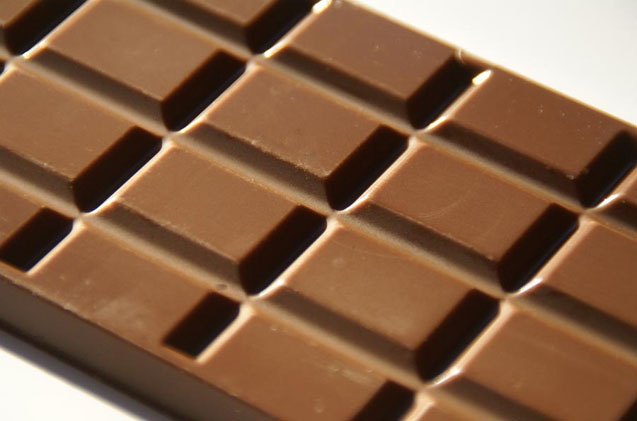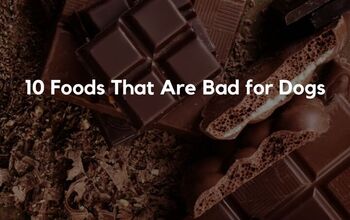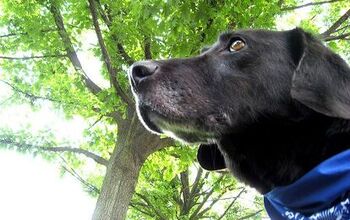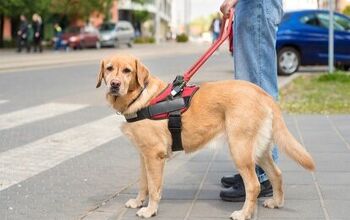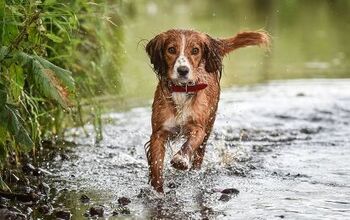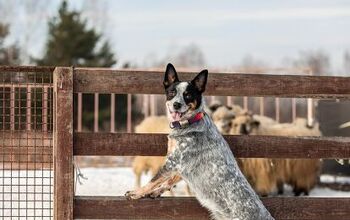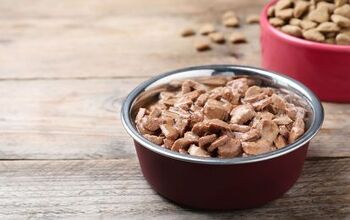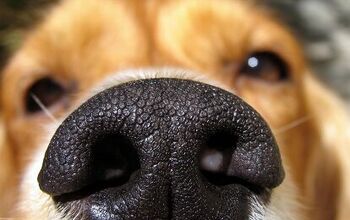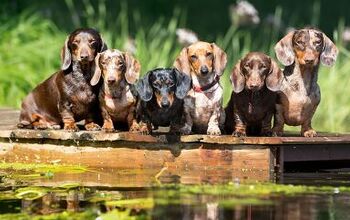Top 10 Foods That Are Bad For Dogs

If you own a dog, you know that the instant something that smells like food falls on the floor, your dog is all over it. In fact, it might not even have to smell edible for your pooch to want to see for himself if can make a tasty meal. And while most of the time you don’t mind your dog Hoovering your spills (hey, anything to have less to clean up!), there are a few morsels that can be deadly or cause serious illness when ingested by your pooch. In those cases, you’ll have to wrestle your pooch to get that stolen bite out, rather than risk adverse effects, which often include severe health issues.
While most human foods won’t be fatal to a dog, there are exceptions. Some human foods can cause issues if given on a regular basis, others could wreak havoc in a matter of minutes after that first bite. Needless to say, it’s important for every dog parent to know which foods are OK and which are a big no-no, to make sure their pooch is not accidentally at risk. And having in mind how devious pooches can be when it comes to stealing your food, even if you never give your pet the food from your plate, it’s still good to be informed.
For all those hungry pooches out there, we’ve put together a list of dangerous foods they should never nibble on. Check out our top 10 foods that are bad for dogs you’ll commonly find around your home.
(Photo credit: urbans/Shutterstock)
Chocolate: Chocolate just might be the most loved food in the world, and it’s easy to see why. A bite (or a few) might flood your brain with feel good hormones, but this sweet treat can be deadly to your dog. Depending on your pet’s size anything between a bite size to a whole bar can have a fatal outcome. That’s why most pet pawrents are super alert around Valentines Days and other holidays when there’s chocolate on every step. Most people know about this doggy danger, but did you know why it’s bad for your dog? It’s because it contains theobromine, which is found in all kinds of chocolate (and even garden mulch). Some of the symptoms you can expect after your dog eats chocolate include vomiting, diarrhea, excessive thirst, abnormal heart rhythm, tremors, seizures, and death. (Photo credit: Ian Britton/ FreeFoto.com)
Grapes and Raisins: This one may be new to you, but it’s true. Sure, they make great bite-sized treats, but you shouldn’t be feeding them to your dog. Dried or fresh, grapes are one of those fruits that are bad for dogs. Even a small amount can cause your dog to become sick. Unknowingly, people let their pet treat themselves to a sweet raisin, thinking it’s healthy for them. However, one of the most common problems linked to these tiny treats is kidney failure. Watch for vomiting, lethargy, and depression. If you’re munching on a bowl of grapes and raisins, make sure none fall on the floor where they will be quickly lapped up by your dog. Because, make no mistake, as soon as that raisin drops to the floor, your greedy little gremlin will snort it up in a second. (Ian Britton/ FreeFoto.com)
Onions: Chopping them might make you cry, but eating onions can do far worse things to your dog. Onion contains disulfides and sulfoxides (thiosulphate), which can cause anemia and damage red blood cells. As well, onions cause irritation in a dog’s gastrointestinal tract, may lead to asthma attacks, and even cause liver damage. Symptoms include vomiting, diarrhea, discolored urine and lethargy. Of course, people rarely get the impulse to give their pets raw onion to chow on (imagine that breath!) but the same goes for thermally processed onions, too. As most human dishes contain sauteed, cooked, or powdered onion for flavor, it makes them unsafe for human consumption- not to mention other harmful for dog ingredients they also contain. (Photo credit: Jon Sullivan)
Sugar: It’s not good for us (even though we love it) and it’s not good for our dogs. Leave it out of your treat recipes (use a drizzle of honey instead if you really have to) and make sure to pay attention to ingredients lists of the store bought stuff- sugar is often lurking somewhere in treats or kibble. Sugar can lead to obesity, dental problems, and diabetes in dogs, which is not that different from the effects it has on humans. On the plus side, if you have a dog, you can use this as an excuse to cut down on your sugar habit! All parties will benefit. (Photo credit: Uwe Hermann)
Milk and Dairy Products: No sharing ice cream with your dog on a hot summer day, because milk does not do a dog’s body good! Milk and dairy products can cause a host of stomach issues.These can lead to diarrhea, as well as set the stage for other food allergies. And even in the mildest case of irritation to dairy (which is bound to happen), you’ll be sentenced to be around your farting pooch for days. And that’s no one’s idea of quality time. (Photo credit: Robyn Lee/Flickr)
Coffee and Caffeine: No matter how cranky your dog is in the morning, don’t give him a cup of coffee or caffeinated drink. That includes cola, tea and cocoa (as well as human cold medicine and pain killers). If your dog gets enough caffeine in his system, there’s nothing that can be done to cure him. Caffeine poisoning symptoms include rapid breathing, restlessness, heart palpitations, muscle tremors, bleeding and even death. (Photo credit: Ian Britton/ FreeFoto.com)
Macadamia Nuts: They may be full of protein, but Macadamia nuts are deadly for your dog. If your dog eats as few as six raw Macadamia nuts, he could become ill. Watch for muscle tremors, weakness or paralysis of the hindquarters, vomiting, elevated body temperature, and rapid heart rate. (Photo credit: Slice of Chic/Flickr)
Yeast Dough: You know how yeast makes dough rise. Well, if your dog gets into yeast dough, you can expect it to do the same thing in his belly! His stomach will stretch and expand, causing serious pain and lots of gas. As well, the yeast can ferment into alcohol, which can lead to alcohol poisoning. So, if you’re baking some goodies for you, be sure to leave the dough to rise somewhere far, far away from your dog’s reach. (Photo credit: Pixabay.com)
Salt: You’re not going to pour salt on your dog’s meal, but it is found on human food such as chips and pretzels. Keep these foods to yourself while snacking, as too much salt can lead to sodium ion poisoning. Symptoms include vomiting, diarrhea, tremors, elevated body temperature, depression, and seizures. (Photo credit: Evan-Amos/Wikimedia Commons)
Peaches, Plums and Persimmons: With peaches and plums, it’s not so much the fruit as it is the pits. The pits can cause intestinal obstructions if swallowed and the seeds of persimmons cause inflammation of the small intestine. As well, the pits of these fruits contain cyanide. We can’t break into the pits with our teeth and we don’t swallow them whole – but out dogs don’t know how deadly these pits can be. Be sure to throw out your pits when you’ve finished eating these fruits. (Photo credit: Ian Britton/ FreeFoto.com)

Amy Tokic, Editor of PetGuide.com, is a passionate animal lover and proud pet parent of Oscar, a Shih Tzu/Chihuahua cross, and Zed, a Japanese Chin. Her love of animals began in kindergarten, when she brought her stuffed dog Snoopy into class with her every day. Now, she writes about her adventures in pet ownership and tirelessly researches products, news and health related issues she can share with other animal enthusiasts. In her free time, Amy loves perusing used book and record stores, obsessing over the latest pet products available and chasing squirrels with wild abandon (a habit attributed to spending too much time with her pooches).
More by Amy Tokic




